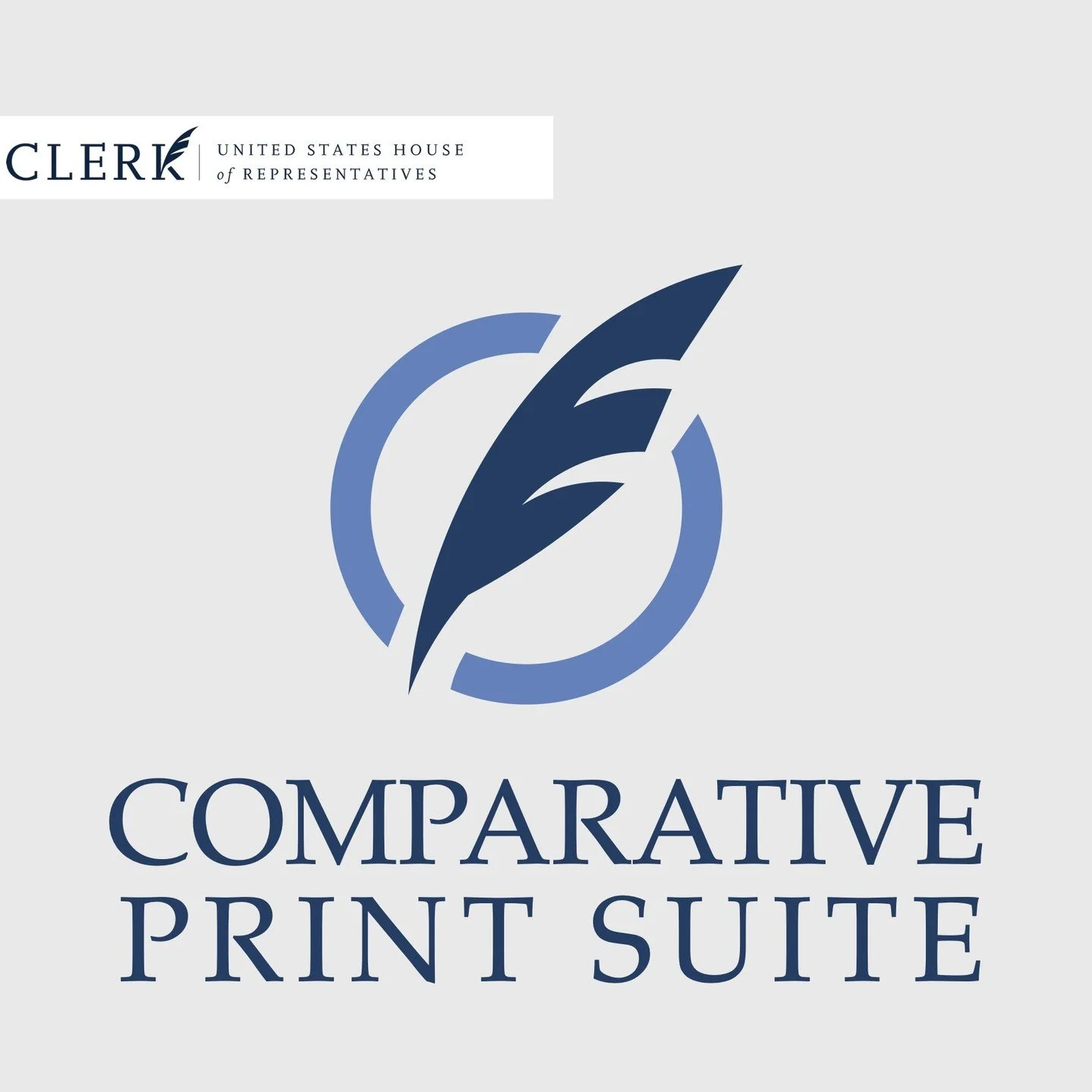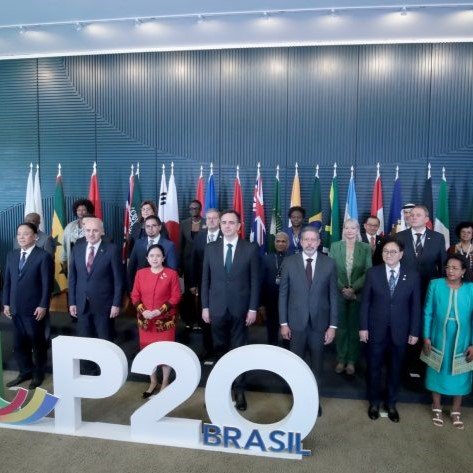
Legislative Technology
A series on technology innovations in the US Congress and beyond
United States
The U.S. Congress has long suffered from archaic technical infrastructure and processes.
In January 2019, the House took a significant step towards identifying and addressing these issues with the establishment of a bipartisan Select Committee on the Modernization of Congress, with a mandate to “investigate, study, make findings, hold public hearings, and develop recommendations on modernizing Congress,” including on “technology and innovation.”
The House Select Committee issued a number of recommendations on how Congress can better use technology for its own internal operations, to address what our cofounder, Marci Harris, has called the “internal pacing problem.”
-
![]()
SalarySense
Developed by the House Chief Administrative Office in partnership with the House Administration Committee, SalarySense is an internal interactive database allowing House hiring managers and chiefs of staff to compare average compensation data across different Congressional staff roles.
SalarySense creates a dashboard for House chiefs of staff and staff directors to compare average Congressional staff compensation by role, tenure on the Hill, party, and state or region. It uses publicly-available Member office disbursement data to create a user-friendly tool helping House hiring managers conduct a more informed hiring process.
-
![]()
Deconflict
Deconflict utilizes data stored in the Committee Repository to display an up-to-date schedule of committee hearings and markups to majority committee staff. Staff are also able to input pending future events to place calendar holds on certain time slots and see which Members would be available at any given time.
-
![]()
Comparative Print Suite
The House of Representatives’ new Comparative Print Suite allows staff to directly compare two versions of a bill — to easily see which changes have been made through line edits or amendments or to see how a bill would change a current law.
Most of the publicly available information on the Comparative Print Project comes from quarterly reports submitted by the Clerk of the House on the project’s development. There is little to no information on the project that is intended primarily for public consumption. The Comparative Print Project has received extraordinarily little public attention for how useful a software it is and how long it has been in development.
-
![]()
Tour Trackr
TourTrackr allows congressional offices to digitize the constituent tour booking process, send confirmation emails, track upcoming tours, and see analytics for previous tours.
TourTrackr was designed to streamline the process of coordinating, scheduling, and organizing Capitol tours in congressional offices. The product also provides easy-to-use means for constituent engagement in the form of user-friendly email communications that can be sent by office staff. Rather than arduously keeping track of tours manually using a multitude of spreadsheets and individual emails, TourTrackr allows users to save staff time by consolidating the entire process into one application.
-
![]()
Quill
Quill facilitates the electronic signing of documents in the U.S. House of Representatives and U.S. Senate.
Quill was developed by the Senate and later shared with the Office of the Chief Administrative Officer of the House of Representatives in 2021. Quill allows approved congressional signers to edit electronic letters in real time and attach copies of Member’s original handwritten signatures. The system is designed to reduce the amount of time staff and interns need to devote to soliciting signatures from other offices via phone call and traveling throughout the Capitol complex.
-
![]()
eHopper
The eHopper is the system in the U.S. House of Representatives for electronically submitting floor documents such as bills, resolutions, and cosponsor forms.
The “eHopper” was introduced in the U.S. House of Representatives by the Office of the Clerk in response to the COVID-19 pandemic to provide Members with an alternative method for submitting legislative documents, which, until the the eHopper, still required physical submission of printed copies on the House Floor.
International Innovations
Parliaments across the globe have been investing in tools and processes to modernize their institutions. POPVOX Foundation tracks and summarizes these innovations for those interested in adapting them to their own context.
-
![]()
P20 Leaders Emphasize Parliamentary Cooperation and Gender Equality
The 10th G20 Parliamentary Speakers’ Summit in Brasília emphasized parliamentary cooperation, sustainable development, gender equality, and combating hunger.
-
![]()
149th IPU Assembly Highlights Technological Inequality Among Parliaments
The 149th IPU Assembly in Geneva emphasized the widening technological gap among parliaments, urging wealthier nations to share technological resources with less-resourced counterparts.
-
![]()
The Impact of Political Fragmentation on Legislative Institution Workflow: A Global Perspective
Recent elections and political shifts across the globe have frequently led to increasingly fragmented parliaments, presenting both challenges and opportunities for democratic processes.
-
![]()
Lawmakers Convene in Miami to Discuss Transforming Digital Economies in the Caribbean
On September 7-8, 2024, legislators from across the Caribbean convened at Florida International University's Steven J. Green School for International and Public Affairs for a groundbreaking forum on "The Role of Parliaments in Transforming Digital Economies in the Caribbean."
-
![]()
Brazil's Senate: Navigating Procedural Rules with AI
As most parliaments grapple with how to incorporate AI into their legislative processes, Brazil’s Senate is leading the development of a new tool to help staffers consult and apply legislative procedures in committees and on the floor.
-
![]()
Reimagining Parliamentary Procedures: Insights from a Veteran Clerk of the UK House of Commons
Paul Evans, who served as Clerk of the British House of Commons from 1981 to 2019, offers a wealth of insights on reforming legislative procedures in his recent chapter "Reimagining Parliamentary Procedure."
-
![]()
Paul Evans: Legislative Procedures as Living Institutions
Paul Evans reflects on his latest chapter “Reimagining Parliamentary Procedure,” part of the book Reimagining Parliament, in which he identifies the problems with procedures in the British parliament, such as their complexity, illegitimacy, and capture by the Executive.
-
![]()
Reimagining Parliament(s)
How would one go about reimagining the UK Parliament? Reimagining Parliament, edited by David Judge and Cristina Leston-Bandeira, presents a surprising list of reform possibilities inspires us all to think bigger about our institutions — and not only in the British context.
-
![]()
Senate Mashinani: Bringing Senators to Kenya’s Counties
In Kenya, during a “Senate Mashinani,” the entire Kenyan Senate relocates from the capitol in Nairobi to legislate from one of the country’s 47 counties, a reminder that often the most effective way for lawmakers to connect with the people they serve is to meet them — literally — where they are.
-
![]()
Bússola Tech Webinar on AI in Portuguese-Speaking Parliaments
In April 2024, Bússola Tech hosted a webinar on Artificial Intelligence in Portuguese-speaking Parliaments, featuring speakers from Angola, Brazil, Mozambique, and Portugal.
-
![]()
Portal Ciudadano
The need to bring legislators closer to citizens led Mexico’s Chamber of Deputies to develop the Portal Ciudadano, a website that introduces the institution to the Mexican people.

















